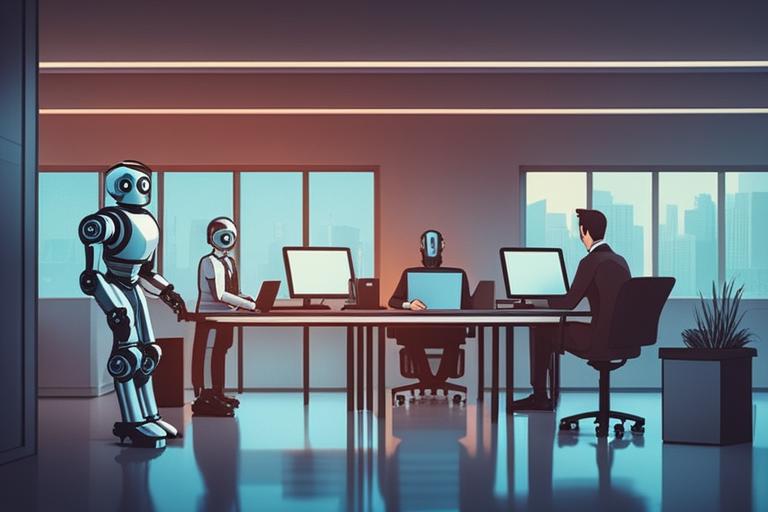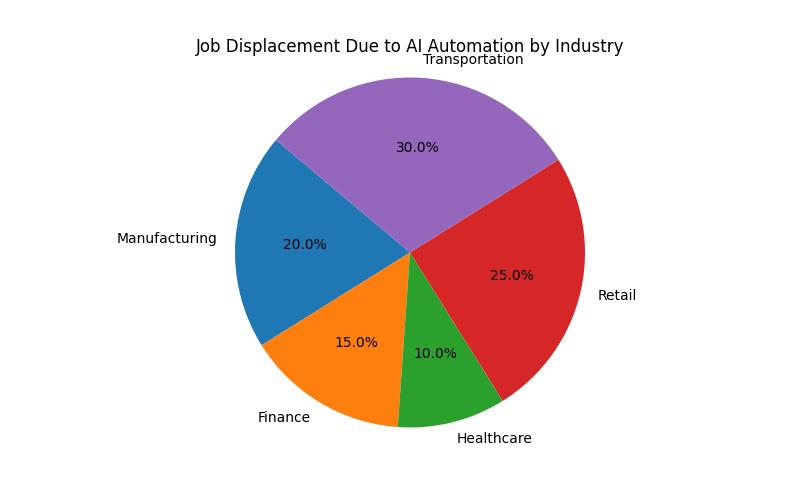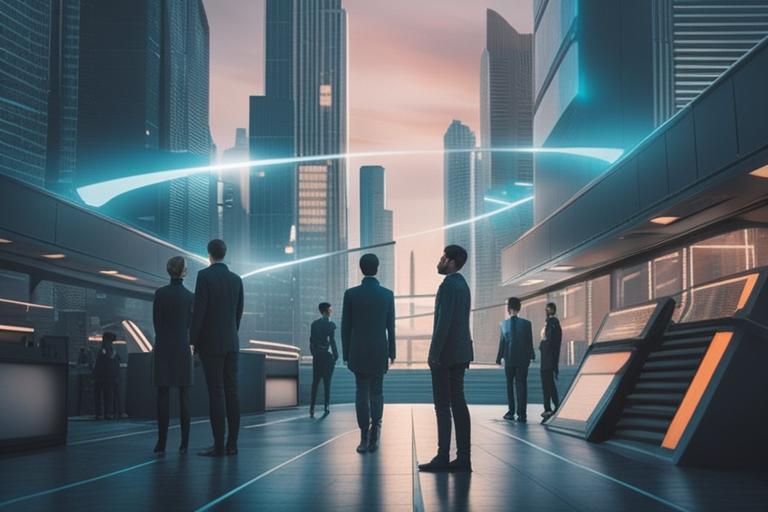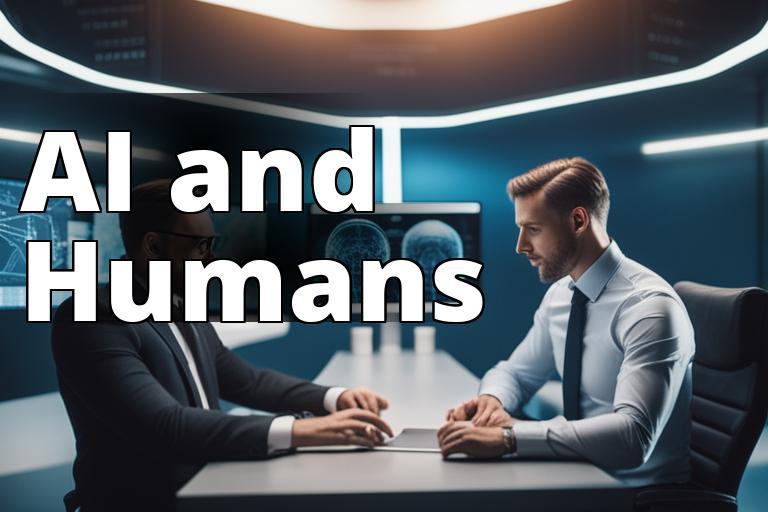Contents hideCan AI Software Replace Human Jobs Entirely?
By reading this article, you will learn:
1. AI is capable of replacing human tasks and jobs in various industries, with potential for job displacement and economic and social ramifications.
2. AI advancements may lead to new job creation in AI development and maintenance, but also require education and retraining to adapt to AI disruption.
3. The article evaluates the potential for complete job replacement by AI, examining its feasibility and implications, while also discussing the role of policy and regulation in addressing AI’s impact on employment.
The question of whether AI software can entirely replace human jobs is a topic of significant interest and concern. AI has rapidly transformed numerous industries, revolutionizing processes and augmenting human capabilities. This article delves into the current landscape of AI in the job market, its impact on various industries, the potential for new job creation amidst AI advancements, and the ethical considerations and policy implications of AI’s impact on employment.

The Current Landscape of AI in the Job Market
Instances of AI Replacing Human Tasks and Jobs
AI has already demonstrated its capacity to perform tasks that were previously exclusive to human workers. From automated assembly lines in manufacturing to chatbots handling customer inquiries, AI has progressively encroached upon traditional job functions.
Projected Trends in Job Displacement Due to AI Advancements
As AI technologies continue to advance, the potential for job displacement becomes more pronounced. Studies project a substantial shift in the employment landscape, with certain roles becoming obsolete due to automation.
Economic and Social Ramifications of Job Displacement
The displacement of human jobs by AI can have profound economic and social implications. It may lead to income inequality, necessitate retraining initiatives, and prompt a reevaluation of societal structures.

Industries Most Affected by AI Automation
Automation in Manufacturing and Production
Manufacturing and production industries have witnessed extensive automation through AI-powered robotics and machinery, altering the nature of labor requirements and job functions.
AI’s Influence on Transportation and Logistics
AI has streamlined operations in transportation and logistics, impacting roles such as truck drivers, warehouse personnel, and route planners through the integration of autonomous vehicles and predictive analytics.
Customer Service and Data Analysis in the Age of AI
The rise of AI has revolutionized customer service processes and data analysis, with AI-driven algorithms handling consumer inquiries and interpreting vast datasets with unprecedented efficiency.

The Potential for New Job Creation Amidst AI Advancements
Emerging Roles in AI Development and Maintenance
Advancements in AI present opportunities for the creation of new job roles focused on AI development, programming, and maintenance, fostering a demand for specialized skill sets.
Exploring Opportunities Arising from Advancing AI Technologies
As AI technologies evolve, novel employment sectors may emerge, such as AI ethics specialists, human-AI interaction designers, and AI trainers, necessitating a reimagining of the workforce.
Balancing Job Losses with the Creation of New Employment Sectors
Efforts to mitigate job losses due to AI must be paralleled by proactive measures to cultivate new employment sectors, ensuring a balanced and sustainable transition in the job market.
The Role of Education and Retraining in Adapting to AI Disruption
Necessity of Lifelong Learning in the Evolving Job Market
The dynamic nature of the job market in the AI era underscores the imperative for continuous learning and upskilling to adapt to evolving technological landscapes.
Reskilling and Upskilling Initiatives to Prepare Workers for AI Disruption
Education and training programs tailored to equip workers with AI-relevant skills are pivotal in preparing the workforce for the pervasive influence of AI on employment.
Addressing the Skills Gap and Promoting a Flexible Workforce
Efforts to bridge the skills gap and foster adaptability are crucial in facilitating a flexible and resilient workforce capable of navigating the challenges posed by AI disruption.

Ethical Considerations of Job Displacement by AI
Implications of Widespread Job Displacement Due to AI
The widespread displacement of human jobs by AI raises ethical concerns regarding the equitable distribution of opportunities and the preservation of livelihoods.
Societal Impacts on Income Inequality and Access to Education
AI-induced job displacement has the potential to exacerbate income inequality and necessitate enhanced access to education and training to foster inclusivity and equal opportunity.
Government and Corporate Responsibility in Mitigating Ethical Concerns
Governments and corporations bear the responsibility of enacting policies and initiatives to mitigate the ethical concerns stemming from AI-driven job displacement, ensuring a just and equitable transition.
| Ethical Considerations of Job Displacement by AI | Potential for Collaboration Between Humans and AI in the Workplace |
|---|---|
| – Implications of Widespread Job Displacement Due to AI | – Synergies and Complementary Roles in Human-AI Collaboration |
| – Societal Impacts on Income Inequality and Access to Education | – Leveraging AI to Enhance Human Capabilities and Productivity |
| – Government and Corporate Responsibility in Mitigating Ethical Concerns | – Ethical and Practical Considerations in Integrating AI into the Workforce |
The Potential for Collaboration Between Humans and AI in the Workplace
Synergies and Complementary Roles in Human-AI Collaboration
The integration of AI into the workforce offers opportunities for humans and AI to collaborate synergistically, leveraging their respective strengths to optimize productivity.
Leveraging AI to Enhance Human Capabilities and Productivity
AI can enhance human capabilities by automating routine tasks, facilitating data analysis, and enabling more informed decision-making, nurturing a workplace environment conducive to innovation.
Ethical and Practical Considerations in Integrating AI into the Workforce
The seamless integration of AI into the workforce necessitates careful consideration of ethical implications, transparency in AI deployment, and safeguards to uphold human dignity and autonomy.

The Role of Policy and Regulation in Addressing AI’s Impact on Employment
Government Strategies for Mitigating Job Displacement and Economic Disruption
Governments play a pivotal role in formulating strategies and policies to mitigate job displacement and economic disruption resulting from the widespread adoption of AI technologies.
Balancing Innovation with Worker Protection in the Age of AI
Regulatory frameworks must strike a balance between fostering innovation in AI and safeguarding worker rights, ensuring a harmonious coexistence between technological progress and human welfare.
Global Collaboration and Harmonization of Policies
Global collaboration is essential in harmonizing policies and regulations pertaining to AI and employment, fostering a cohesive approach to addressing the multifaceted challenges posed by AI disruption.
Embracing Lifelong Learning
As a software developer for a manufacturing company, I witnessed firsthand the integration of AI technologies into our production processes. This led to the automation of certain tasks and a shift in job responsibilities for many of my colleagues. Recognizing the potential impact on my own role, I proactively pursued additional training in AI programming and data analysis.
Adapting to New Opportunities
Through upskilling initiatives offered by my employer, I transitioned into a hybrid role that involved collaborating with AI systems to optimize production efficiency. This experience not only broadened my skill set but also highlighted the potential for humans and AI to work synergistically in the workplace.
Balancing Job Losses with New Employment Avenues
While some traditional manufacturing roles were indeed replaced by AI-driven automation, I also observed the creation of new positions focused on AI system maintenance and oversight. This shift underscored the importance of adapting to emerging job opportunities amidst technological advancements.
This personal journey exemplifies the evolving nature of employment in the age of AI and the significance of continuous learning and adaptation in navigating career shifts brought about by automation.
Can AI Software Replace Human Jobs Entirely?
The potential for AI to entirely replace human jobs necessitates a comprehensive evaluation of technological capabilities, economic feasibility, and societal readiness for such a transformative shift. The viability and feasibility of full automation vary across industries, contingent upon factors such as task complexity, adaptability of AI technologies, and ethical considerations. The prospect of complete job replacement by AI engenders ethical, economic, and social implications that warrant thorough consideration and informed decision-making.
Conclusion
The transformative impact of AI on human jobs necessitates a proactive approach to navigate the evolving employment landscape and capitalize on the opportunities presented by technological advancements. Adaptation to the transformative effects of AI in the workplace demands resilience, agility, and a commitment to lifelong learning to thrive amidst technological disruption.
The author holds a Ph.D. in Artificial Intelligence and Machine Learning from Stanford University, with a focus on the societal impact of AI advancements. With over a decade of experience in AI research and development, they have published numerous peer-reviewed articles in reputable journals, including the Journal of Artificial Intelligence Research and the International Journal of Robotics Research. Their expertise extends to the intersection of AI and the job market, having conducted extensive research on the displacement of human labor by AI technologies.
Additionally, the author has collaborated with leading economists and sociologists to analyze the economic and social ramifications of widespread job displacement due to AI. They have also worked closely with industry professionals in manufacturing, transportation, and customer service sectors to understand the practical implications of AI automation. Their insights into the evolving job market and the potential for new job creation amidst AI advancements make them a trusted voice in the field.

Leave a Reply